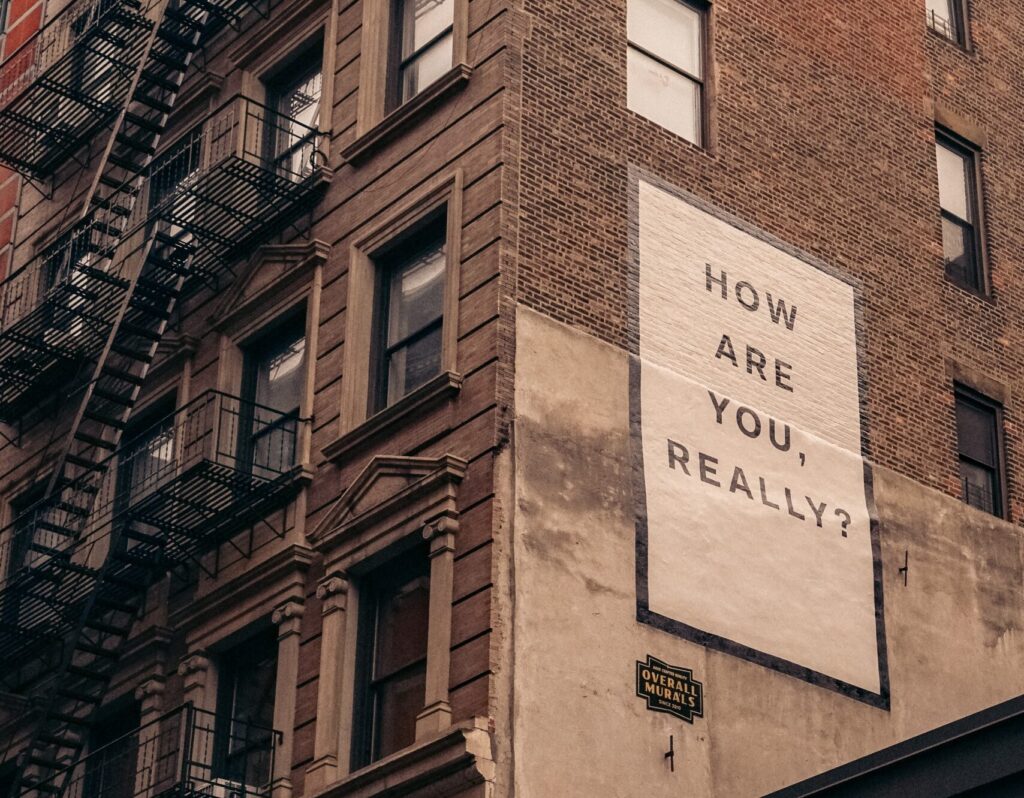There is a global health issue that has impacted an unprecedented number of people today. No, I’m not talking about COVID-19. What I’m referring to is mental health.
In the past few decades mental health issues have skyrocketed. Even more worrying is that, due to the heavy-handed response by governments to the pandemic, mental health problems are at their highest ever.
Men have been hit especially hard by the mental health epidemic. This is a crucial time to understand what is mental health, which is why we’ve put together a beginner’s guide to mental health.
If you want to know how to safeguard your mental health, then keep reading.
What do we mean by Mental Health issues?
When we say mental health, we’re referring to issues that cause us to feel lower self-esteem, self-confidence, motivation, hope, and other positive mental states. When these get low enough, diagnosable mental health issues like anxiety, depression, and suicidal thoughts can emerge.
As men, we are more prone to suffering from untreated mental health issues. Suicide is officially now the 10th leading cause of death in the United States. Not only that, but men are 3.5 times more likely to die from suicide than women. Middle-aged men are at the highest risk of dying from suicide. Breaking down the stats down a little further, white males are 70% more likely to die from suicide.
While causes may have been harder to pinpoint before, we can see now that lack of socialization is a key reason for having mental health issues. Scientists even say that it’s not a luxury but a developmental necessity.
‘Just Man up’
Especially in countries like Britain and America, men are culturally “not allowed” to have the same kind of strong and close connections with other men that women have with other women. While, thankfully, that is slowly changing, across large parts of society it’s still a major taboo to talk to another guy about your feelings and what you’re going through. Instead, traditionally those struggles we may be dealing with are expected to get suppressed and repressed because we’re men who should ‘man up’ and be stronger than that.
However, we are all human beings who have emotions. It’s part of the human experience to laugh, cry, hug, and care for others, regardless of what gender they identify as. Infants need human touch so critically that they will die or have their brains significantly altered without it.
The importance of human connection
Back in the 1900s, Dr. Luther Emmet Holt, who was one of America’s first pediatricians, believed parents were cuddling and holding their children too much. Since people took this doctor’s word as the absolute truth, they started practicing ‘hands-off’ parenting. A few years later, infant deaths shot way up, especially in healthy newborns. It became clear: not getting enough human contact led to their untimely deaths.
The need for physical connection doesn’t stop once we grow up. It’s a need that is ever-present within us. Even before all the social distancing measures, the world had become so highly connected virtually, yet increasingly disconnected physically. This is a problem. You could be on social media all day, seemingly hyper-connected with your friends. Yet, there is overwhelming evidence that consistent use of platforms like Instagram and facebook can increase depression, loneliness, anxiety, low self-esteem, and more.
As men, just as everyone, we need authentic human connection in order to maintain positive mental health.
Promisingly, we are seeing a rise of conscious masculinity, which acknowledges the need for close connection with other men as being essential to positive mental health. An increasing number of men’s groups are getting together to do everything from primal screams to powerful releases of trauma-caused trapped emotions by bawling their eyes out. These men are seeing their bonds strengthened with other men, leading to increases in their own self-confidence, self-esteem, and levels of satisfaction and fulfillment in life.
Unfortunately, not that many men are getting in touch with conscious masculinity yet, which is now more apparent than ever.

Common Mental Health issues for Men
There are a number of mental health issues that men are especially prone to. Depression, anxiety, and suicidal thoughts are issues that have increased for reasons I’ll get into later. For now, we’ll focus on the classic most common mental health issues for men.
Social Anxiety Disorder
Social Anxiety Disorder is something that more men struggle with than you may realise. You could loathe meeting new people if you suffer from this. You would rather stay at home than go out to a party or gathering. This goes beyond normal ‘shyness’. It is a debilitating mental health issue that makes it incredibly difficult to get out into the World and do anything.
Obsessive-Compulsive Disorder
Do you regularly worry about whether you locked your door before going to bed? Do you check it, then go back to bed, then go back because you’re freaking out due to being unsure whether it’s really locked? Does this process occur regularly? If so, OCD may be something you’re dealing with. Obsessive thoughts and compulsive actions describe this mental health issue.
Bipolar Disorder
Drastic changes in your mood, from being on top of the world to being down in the dumps is considered to be a sign of bipolar disorder. On one end of the spectrum you will feel incredibly depressed. On the other, you will be excessively happy, and sometimes during inappropriate situations. Dealing with this mental health issue often leads to substance abuse and addiction.
Alarming Mental Health trends
Mental health issues have been increasingly prevalent over the past few decades.
Millennials are more likely to commit suicide than other generations. It isn’t too hard to understand why, considering they lived through the Great Recession, the opioid epidemic, and now COVID-19. Also, they are the first generation that has become worse off financially than previous generations. This has never happened before in British or American history.
Men are more vulnerable to mental health issues due to being more apprehensive about getting help. As men, we sometimes try to brush things off so as not to appear weak. Yet, this can backfire big time, and once we realise, it may be too late. Thankfully, thanks to the vast knowledge base we call the Internet, if you’re not wanting to talk to a therapist or get help in the real world, you can find a tremendous amount of help from online resources, which I’ll share a little later on.
But first, why have mental health issues ballooned over the past several months? It’s due to being forced to become disconnected in ways that go against the most inherently human part of us: gathering.
Ever since the lockdowns forced people to become isolated from one another, including the need for human touch, depression and anxiety have skyrocketed. The constant fear-mongering also hasn’t helped. This has all led to issues like depression and anxiety tripling this year. Now, mental health issues like depression and suicide are being acknowledged as bigger issues than COVID-19 for young people.
Yes, you can have a Zoom party, and that is at least better than nothing, but the need for authentic in-person connection is something that cannot be replaced with anything. That is why mental health issues will continue to increase at the unprecedented rate they have been. However, it’s important to emphasise that the reaction by governments to the pandemic is not the main reason for mental health becoming such a massive issue. Mental health has been its own ‘pandemic’ in the making for decades.
What the current social distancing mandates and all the rest of it have demonstrated, however, is what happens when humans become disconnected from one another, are afraid, and are lacking hope.
For decades, people have seen things become progressively worse when it comes to the environment, for instance. In fact, the numbers are absolutely staggering, with 70% of wildlife that existed 50 years ago now being wiped off the face of the Earth.
How to improve Mental Health
As men, we sometimes need a good kick in the butt to make changes in our lives. You probably can now see just how massive an issue mental health is. It can affect the most resilient of us, even if it’s on a more subconscious level at first. That’s why, after becoming aware of the problem (or potential problem), it’s a good idea to take action.
Prevention is the ideal choice.
If you’re not suffering from serious mental health issues right now, you can keep up some basic, yet effective, mental health hygiene to stay healthy and happy.
If you’re already struggling with mental health issues, you can make some lifestyle changes, as well as adopt healthy habits that can lift you up from the depths of depression and other mental health issues.
There’s a wealth of resources you can look into if you want to improve your mental health and make sure you’re taking care of those needs we as men tend to avoid.
You can take advantage of numerous podcasts, YouTube channels, online communities, help lines, and other things to improve or upkeep your mental health. These are challenging times for all of us, so it can be helpful to explore the resources available to make sure we make it out alright on the other side of everything that’s happening in the world right now.
To give you a taste, here are a few excellent resources for mental health that men everyone can benefit from.
Mental Health Resources for Men
For helpful information on a wide range of emotional health issues, Young Men’s Health is a great resource to look into.
The Jed Foundation has a wealth of resources, especially in the form of questions, when it comes to mental health that are worth referencing.
The Good Men Project is focused on helping men in many different areas, one of them being mental health. You can find some gems here.
If you’re on the younger side, you could check out Mindfulness for Teens, which is all about how the meditative practice of mindfulness can improve mental health.
Mindfulness Exercises has dozens of worksheets and guides for various mindfulness practices that are sure to improve your mental health.




